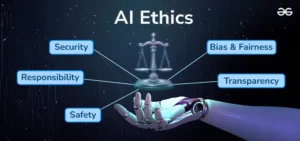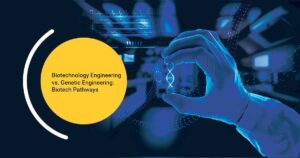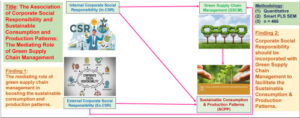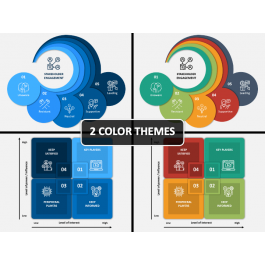Ethics and Societal Implications: Navigating Modern Challenges
In an era marked by rapid technological advancements and profound societal shifts, the intersection of ethics and societal implications has never been more crucial. From artificial intelligence and biotechnology to data privacy and environmental sustainability, the ethical considerations surrounding these issues are vast and complex. Understanding and addressing these ethical challenges is essential for fostering a just and equitable society. This article explores key ethical issues and their societal implications, offering a comprehensive overview of the landscape and suggesting pathways for thoughtful engagement.
The Ethics of Artificial Intelligence

Artificial Intelligence (AI) stands as one of the most transformative technologies of our time. Its applications range from autonomous vehicles and facial recognition to predictive analytics and virtual assistants. While AI promises unprecedented benefits, such as improved healthcare diagnostics and optimized resource management, it also raises significant ethical concerns.
One major issue is bias in AI systems. AI algorithms, often trained on historical data, can perpetuate and even amplify existing biases present in the data. For example, if an AI system used for hiring decisions is trained on data reflecting past hiring practices, it may inherit biases related to gender, race, or socioeconomic status. This can lead to discriminatory outcomes, reinforcing systemic inequalities.
Furthermore, the transparency and accountability of AI decisions are critical ethical concerns. When AI systems make decisions that impact people’s lives, such as determining credit scores or legal outcomes, it is essential that these decisions are explainable and accountable. The “black box” nature of many AI systems—where the decision-making process is opaque—poses a challenge for accountability and trust.
Biotechnology and Genetic Engineering

Biotechnology and genetic engineering have revolutionized fields like medicine, agriculture, and environmental conservation. Techniques such as CRISPR-Cas9 allow for precise genetic modifications, offering potential cures for genetic disorders and the ability to enhance crop yields. However, these technologies also present ethical dilemmas.
One of the foremost concerns is the potential for “designer babies”—the possibility of using genetic modification to select or enhance traits in embryos. This raises questions about the nature of human identity and the ethical boundaries of altering human genetics. The prospect of creating genetically modified humans touches on deep issues about eugenics, inequality, and the potential for new forms of discrimination.
Another critical issue is the environmental impact of genetic engineering in agriculture. While genetically modified (GM) crops can offer benefits such as resistance to pests and diseases, they also pose risks related to biodiversity, ecological balance, and the long-term effects on human health. The ethical responsibility to ensure that these technologies are used in ways that do not harm the environment or public health is paramount.
Data Privacy and Surveillance

In the digital age, data privacy and surveillance have become pressing ethical issues. The proliferation of personal data through social media, online transactions, and digital communications has created new opportunities for surveillance and data exploitation. Companies and governments collect vast amounts of data, often without explicit consent or adequate safeguards.
One significant ethical concern is the balance between security and privacy. Surveillance technologies, such as facial recognition and data tracking, can enhance security and improve public services, but they also raise issues about individual privacy and freedom. The potential for abuse, such as unauthorized data collection or government overreach, underscores the need for robust ethical frameworks and regulatory oversight.
Additionally, the commodification of personal data by tech companies raises questions about consent and ownership. Individuals often have little control over how their data is collected, used, or shared. Ensuring that data privacy is respected and that individuals have agency over their personal information is a critical ethical consideration in the digital era.
Environmental Sustainability

Environmental sustainability is another area where ethics and societal implications intersect. The urgent need to address climate change, resource depletion, and environmental degradation requires ethical reflection on our responsibilities to the planet and future generations.
One ethical issue is the principle of intergenerational justice—the idea that current generations have a moral obligation to preserve resources and protect the environment for future generations. This principle challenges short-term thinking and encourages policies and practices that prioritize long-term sustainability.
Moreover, environmental justice addresses the disproportionate impact of environmental issues on marginalized communities. Low-income and minority communities often face greater exposure to pollution and environmental hazards, exacerbating existing inequalities. Addressing these disparities requires an ethical commitment to equitable environmental policies and practices.
Ethical Consumption and Corporate Responsibility

The ethical considerations surrounding consumer behavior and corporate responsibility have gained prominence in recent years. Consumers increasingly demand that companies adhere to ethical practices, such as fair labor conditions, environmentally friendly production processes, and transparent supply chains.
Corporate social responsibility (CSR) involves businesses taking proactive steps to address ethical issues beyond legal requirements. This includes ensuring fair labor practices, reducing environmental impact, and contributing to community well-being. Companies that fail to meet these expectations may face reputational damage and consumer backlash.
Ethical consumption, where individuals make purchasing decisions based on the ethical practices of companies, is also on the rise. Consumers are more informed and concerned about the origins and impact of their purchases, pushing companies to adopt more ethical practices and transparency.
Navigating Ethical Challenges: Pathways Forward

Addressing the complex ethical issues outlined above requires a multifaceted approach. Key strategies include:
1. Promoting Ethical Education and Awareness:

Education and awareness about ethical issues are crucial for informed decision-making. Incorporating ethics into educational curricula and professional training can help individuals and organizations navigate ethical dilemmas more effectively.
2. Developing Robust Regulatory Frameworks:
Governments and regulatory bodies play a critical role in setting standards and guidelines for ethical practices. Developing and enforcing regulations that address emerging ethical challenges, such as data privacy and AI transparency, is essential for protecting individuals and society.
3. Encouraging Stakeholder Engagement:

Engaging diverse stakeholders, including affected communities, ethicists, and industry experts, in decision-making processes can provide valuable perspectives and promote more equitable and informed outcomes.
4. Fostering Transparency and Accountability:
Transparency in decision-making processes and accountability for ethical practices are vital for building trust and ensuring responsible behavior. Organizations should prioritize clear communication and mechanisms for addressing ethical concerns.
5. Advancing Ethical Research and Innovation:

Supporting research that explores the ethical implications of new technologies and practices can guide the development of solutions that align with societal values and priorities.
Conclusion
The intersection of ethics and societal implications is a dynamic and evolving field that requires ongoing reflection and action. As we navigate the complexities of modern challenges, it is essential to address ethical issues with a commitment to fairness, transparency, and responsibility. By fostering ethical practices and engaging in thoughtful dialogue, we can work towards a more just and equitable society that balances technological advancement with ethical considerations and societal well-being.
